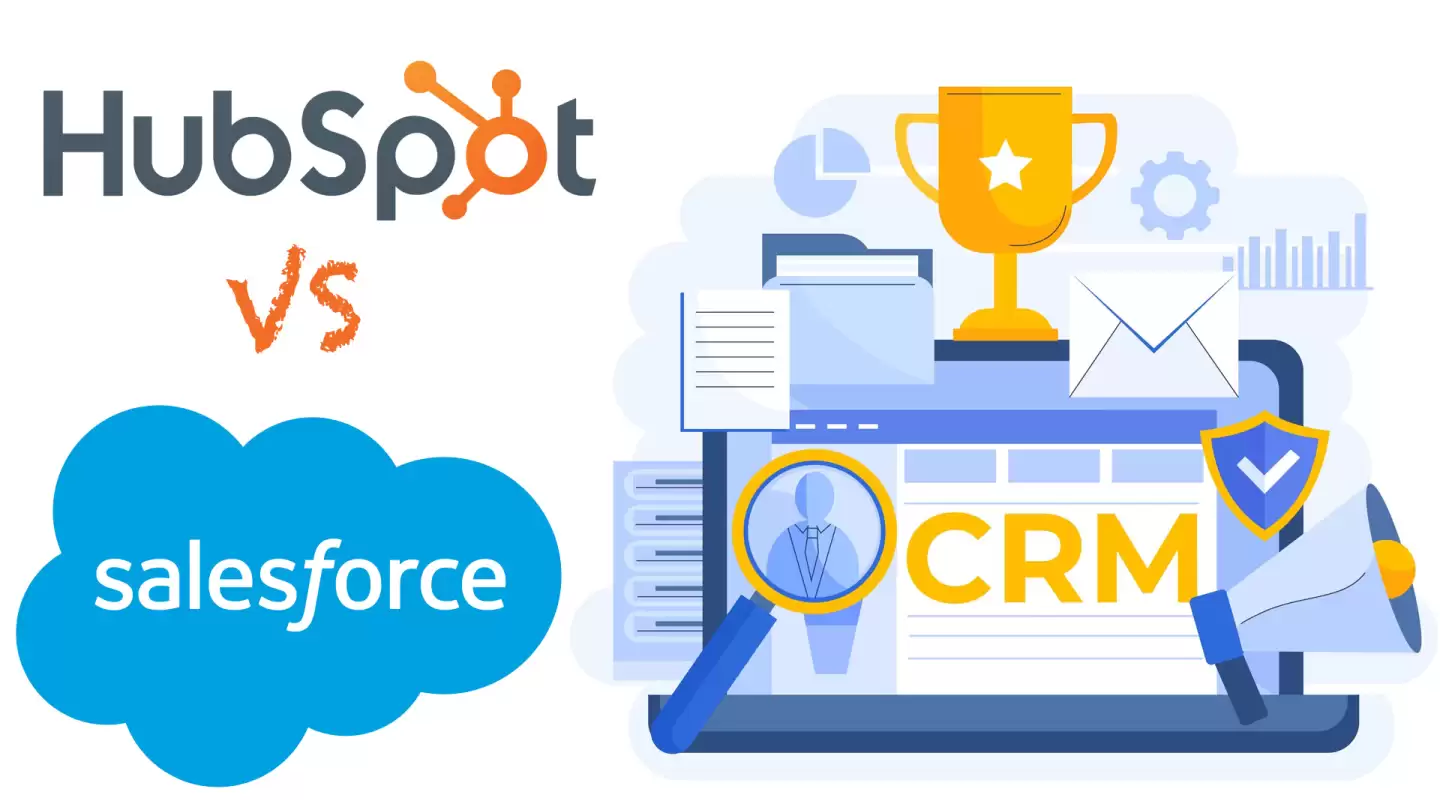
The Ultimate Customer Relationship Management
As a marketing director, choosing the right Customer Relationship Management (CRM) software is a pivotal decision for your company's marketing strategy. Two of the most prominent options in the market are HubSpot CRM and Salesforce. In this detailed comparison, we'll explore the pros and cons of each, delve into pricing structures, provide real-life usage scenarios, and help you determine which CRM solution aligns better with your business needs.
HubSpot CRM:
Pros:
- User-Friendly Interface: HubSpot CRM is renowned for its intuitive and user-friendly interface, making it easy for marketing teams to adopt and use effectively.
- Inbound Marketing Integration: It seamlessly integrates with HubSpot's marketing tools, allowing for a cohesive inbound marketing strategy.
- Automation Capabilities: Automation features simplify lead nurturing, email marketing, and workflow automation.
- Detailed Analytics: HubSpot offers robust analytics and reporting, providing insights into lead behavior and campaign performance.
-
Free Plan: HubSpot CRM offers a free plan with essential features, making it an attractive option for startups and small businesses.
Cons:
- Advanced Features Cost Extra: While the free plan is generous, advanced features like automation and reporting come with a price tag.
-
Limited Customization: Some businesses may find the CRM's customization options to be less flexible compared to Salesforce.
Salesforce:
Pros:
- Extensive Customization: Salesforce offers unparalleled customization options, allowing businesses to tailor the CRM to their unique needs.
- Scalability: It is highly scalable, making it suitable for businesses of all sizes, from startups to enterprises.
- Robust Integrations: Salesforce boasts a vast ecosystem of third-party integrations, providing flexibility in building your ideal marketing stack.
- AI-Powered Insights: Salesforce Einstein AI offers predictive analytics and personalized recommendations.
-
Comprehensive Training and Support: Salesforce offers extensive training resources and a thriving community.
Cons:
- Complexity: The level of customization and complexity can be overwhelming for some users, requiring substantial training.
- Costly: Salesforce is often considered more expensive, especially for smaller businesses.
-
Learning Curve: The learning curve for Salesforce can be steep, and the full suite may include more features than needed for marketing purposes.
Pricing:
HubSpot CRM: HubSpot CRM offers a free plan with core features. Paid plans, including Marketing Hub, Sales Hub, and Service Hub, range from $45/month to $1,200/month, depending on the number of users and features required.
Salesforce: Salesforce pricing varies significantly based on the edition and add-ons. Essentials starts at $25/user/month, while Enterprise and Unlimited editions can range from $150/user/month to $325/user/month or more.
Real-Life Examples:
HubSpot CRM: Use HubSpot CRM to streamline lead nurturing. Create personalized email sequences triggered by user behavior, and track engagement to refine your marketing strategy.
Salesforce: Salesforce excels in managing complex B2B sales cycles. Use it to track leads through the sales funnel, automate follow-ups, and collaborate with your sales team effectively.
When to Choose One Over the Other:
Choose HubSpot CRM if you prioritize simplicity, user-friendliness, and integration with inbound marketing efforts. It's an excellent choice for smaller businesses and those with a focus on content marketing.
Opt for Salesforce if you require extensive customization, scalability, and a robust ecosystem of integrations. It's well-suited for large enterprises and businesses with complex sales processes.
In conclusion, both HubSpot CRM and Salesforce offer powerful CRM solutions, but the choice depends on your business's unique requirements, budget, and your team's comfort with complexity. Assess your needs carefully to make an informed decision.
Join My Weekly Web Design Training Community
Learn how to create sales funnels, landing page, ecommerce website, and any type of website with Joomla. Join our website design training community.
This post contains affiliate links. If you use these links to buy something we may earn a commission.
Popular Tags
More Tutorials





